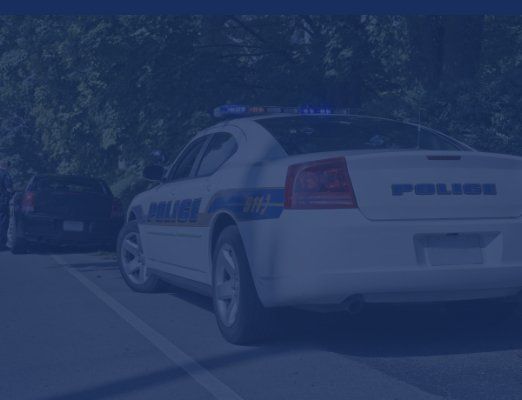Wilmington, NC Violent Crimes Attorney
Violent Crimes Topics
If you are accused of assaulting another person or a more serious violent crime, the best way to protect yourself is to call violent crimes defense attorney Thom Goolsby. These are intimidating charges, but it does not mean you will be convicted. You not required and in most cases should not plead guilty. Instead, contact a criminal defense lawyer who will fight for you and present a strong defense, both in and out of court.
These are fact-driven cases, typically handled by veteran prosecutors and investigators. By working with a skilled lawyer early in your case, you can control what you say to the police, limit the evidence used against you, and possibly negotiate for a favorable outcome or be in the best position for trial.
With over 34 years of experience, a reputation for aggressively defending his clients, and a history of success at trial, Attorney Thom Goolsby can handle any crime involving violence. Let us examine the evidence and do everything possible to have the charges reduced, dismissed or prove your innocence.
All you have to do is pick up the phone. Call 910-262-7401, send a text, or contact us online 24/7 to set up a free consultation.
The Stakes Couldn't Be Higher in Violent Crime Cases
We Defend Against All Violent Crimes
From incarceration to probation, along with a permanent mark on your criminal record, any violent conviction will have a detrimental impact on your life. Attorney Thom Goolsby is highly knowledgeable regarding North Carolina violent crime law. He knows what you are up against, how to deal with these cases, and what it takes to successfully defend against them. Some of the most common violent offenses we see regularly are:
SIMPLE ASSAULT (NCGS §14-33(A))
In North Carolina, battery differs from an assault. An assault consists of threatening or attempting to harm someone. A battery occurs when you intentionally touch another person without consent. There is also a charge called an affray, which is an altercation between you and at least one other person, resulting in a physical fight. Simple assault, simple assault and battery or participating in an affray are all Class 2 misdemeanors
AGGRAVATED ASSAULT (NCGS §14-33(C))
You face a Class A1 misdemeanor if, during an assault, assault or battery or affray, you cause someone serious injury, use a deadly weapon, assault a child under 12, assault a woman if you are a man over 18 (Assault on a Female), assault a state employee, assault a school employee or volunteer or assault a public transit worker.
FELONY ASSAULT (NCGS §14-32 & 32.4)
It is a Class C felony if you assault another person with a deadly weapon, such as a firearm, with intent to kill, and you inflict serious injury. If you use a deadly weapon and inflict serious injury without the intent to kill or you have the intent to kill yet do not inflict serious injury, it is a Class E felony. If you assault someone and cause physical injury by strangulation, it is a Class H felony.
DOMESTIC VIOLENCE (NCGS §50B-1)
In North Carolina, domestic abuse consists of causing or trying to cause bodily injury to a person with whom you have a personal relationship, such as a current or ex-spouse, current or former romantic partner, a household member, the other parent of your child or family members. If you are accused of domestic abuse, you will face charges for the underlying crime, as well as possibly having orders of protection filed against you.
MURDER (NCGS 14-17)
Murder is causing another person’s death through premeditated action or the commission of a felony. This is first-degree murder, a Class A felony. First-degree murder also includes causing the death of a person with whom you had a personal relationship through malicious conduct or against whom you had a previous conviction for domestic violence. Any other form of homicide is considered second-degree murder and is charged as a Class B1 or B2 felony, depending on the circumstances.
MANSLAUGHTER (NCGS 14-18)
If you are accused of causing someone’s death without malice or intent and not during the commission of a felony, you can be charged with manslaughter. Voluntary manslaughter is a Class D felony. Involuntary manslaughter, which is a death resulting from reckless behavior, is a Class F felony.
What Our Client Say
“I lost my carry concealed permit due to the misapplication of the law by law enforcement. My guns were taken from my home, and my permit was suspended. Thank you Thom Goolsby for standing up for the Second Amendment and my gun rights. You corrected the mistake of law enforcement, and I got my permit back. I appreciate your skill and advocacy.”
Criminal Defense Client
“Thank you Thom Goolsby for helping me with my case. I heard that you were a super attorney, and I heard right! Thank you for your attention to detail and for helping me with this important matter. Your office was always available to assist me, and your care and concern meant a great deal to me. If I ever need an attorney again, you will be the first person that I call.”
Personal Injury Client
“Thank you for walking me through the process for getting my open container and underage possession of alcohol charges dismissed. You arranged for a very simple deferred prosecution. It was easy to comply, and my record is now clean. I appreciate your excellent help!”
Criminal Defense Client
North Carolina Sentencing for Violent Misdemeanors and Felonies
If you are facing a misdemeanor or felony in North Carolina, contact a criminal defense attorney right away to discuss the specific charges and the potential penalties.
North Carolina uses complicated sentencing guidelines based on:
- The class of the crime
- Your criminal record
- Mitigating or aggravating circumstances
- A judge’s discretion
MISDEMEANOR PENALTIES
For misdemeanors, there are four classes: A1, 1, 2, and 3. A Class A1 misdemeanor is the most severe. For these crimes, the judge will review your criminal record and place you in prior conviction level I, II, or III. Your class and prior record level dictate the minimum and maximum sentence the judge can prescribe.
For example, with a Class A1 misdemeanor such as Assault on a Female, if you are in prior record level I, you can be penalized with between one and 60 days of community, intermediate, or active punishment. If you have five or more previous convictions, you are in prior record level III and face up to 150 days in jail.
FELONY PENALTIES
For felonies, there are 10 classes and six prior record levels. Class A felonies are the most significant, followed by Class B1, B2, and C. If you are convicted of a Class A felony, you face life imprisonment without parole, regardless of your prior record.
For Class B1 and lower felonies, judges use North Carolina’s felony punishment chart to determine the presumptive range of incarceration, the mitigated and aggravated ranges, and the maximum term of imprisonment.
For example, the presumptive range for a Class B1 felony, if you are in prior record level I, is 192 to 240 months in custody. However, if you are in prior record level V or VI, and there are aggravating factors present, you face life without parole.
Because of the complexity of North Carolina sentencing, particularly for felony offenses, it is vital to consult an experienced violent felony defense attorney regarding potential sentences and your odds of success.
The Criminal Process for Violent Crimes
The criminal process may begin with you being arrested. It can also start with a criminal investigation. The police may desire to speak to you about a crime — or alleged crime — before making an arrest. In either situation, your first call should be to a criminal defense attorney.
You should NEVER speak with an officer or answer any questions without the advice of an experienced criminal defense lawyer. It is always better to let your lawyer speak for you.
When you are under investigation or charged will a crime, your attorney will immediately take steps to protect you. These steps will always include limiting what you say to the police. Officers can and will use anything against you. They may attempt to mislead and manipulate you.
Your attorney also will investigate the allegations against you. Your lawyer needs to know all of the facts of your case — good and bad. Only with all of the information available can your lawyer provide an objective analysis of your case, discuss the best and worst possible outcomes, and advise you on the best way to proceed.
Defending Against Violent Crimes
Violent crimes, like assault, assault on a female, and felonious assault, are fact-driven cases. Attorney Thom Goolsby recognizes the dynamics involved in litigating violence offenses, including the high stakes of a permanent criminal record, possible time behind bars, and the life-long stigma you’re facing. As a result, he takes a hard look at the facts, identifies the weaknesses in the State’s case, and builds the most effective strategy possible.
Often, you can argue self-defense against assault charges. You may have been justified and reasonable in behaving as you did. You may even claim imperfect self-defense. This strategy can be successful in helping you avoid a conviction or mitigating the consequences of a conviction.
Anyone can go to court, plead guilty, and accept the maximum punishment. Attorney Thom Goolsby recommends demanding a trial and fighting assault cases. He rarely, if ever, considers any type of plea. He recognizes that you, like many of his clients, have good reasons for being where you were and involved in an altercation. He also knows you may not have done anything! Instead, another person’s assaultive behavior may be to blame.
In addition to self-defense, other possible defenses include establishing:
- You acted in defense of others.
- You did not commit an unlawful, non-consensual touching.
- You did not threaten or attempt to harm the other individual.
- You were falsely accused by the alleged victim.
- The prosecution lacks sufficient evidence to prove you committed the offense beyond a reasonable doubt.
Violent accusations do not always result in criminal charges or a conviction. There are various ways to defend yourself and pursue the best possible outcome. However, violent crime cases are too important to work with an attorney with limited trial experience or one who rushes you into pleading guilty. Many times, obtaining the best possible result means taking your case to court. To do this, you need to work with a seasoned violent crimes defense attorney with a substantial trial background, like Thom Goolsby.
Goolsby Law Firm Case Results



Call Thom Goolsby Today, Get Help Now
Don’t face violent crime accusations alone. Call Goolsby Law Firm as soon as possible. Let us examine the evidence, discuss your options, and tell you how we will defend you. Attorney Thom Goolsby is just a quick call, email, or text away. Call 910-262-7401 or contact us online to schedule a free consultation.

